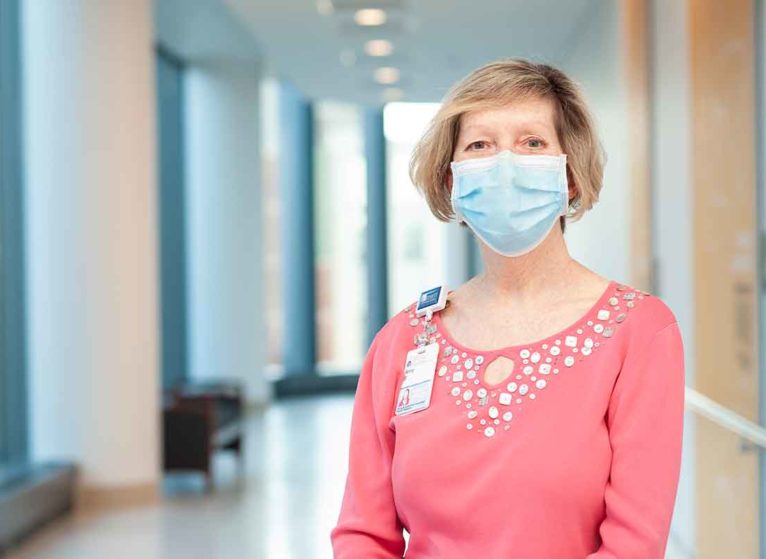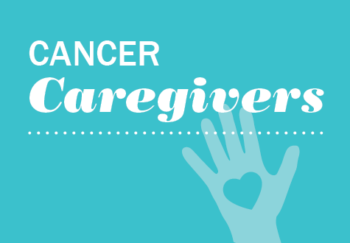Need help with medical bills? You're not alone. A lot of us are in the same boat — a sinking one. Studies show that 40% to 50% of Americans have healthcare debt. It's one thing to stress over a maxed-out credit card that paid for a new TV. It's another to face charges for an operation, an ambulance ride, or a check-up. Going to the doctor is not optional.
So what are you supposed to do when you have an issue with a bill? How do you navigate all the financial lingo and policies, understand which charges apply to what service, and figure out what to do next? All of this takes time and energy that most of us don't have. Especially if we're still sick.
Enter Anne Broccoli. Since May of 2021, she's been serving as the UVA Health Billing and Collection Ombuds. When you're struggling with bill problems or issues, she can step in and help you:
- Read your medical and insurance bills
- See your options for financial aid and payment plans
- Understand policies and decisions
- Settle disagreements about what’s in a bill
- Connect to other resources
Broccoli recently sat down with us to further explain her role.
How an Ombuds Can Help With Medical Bills
What does a Billing and Collection Ombuds do?
The Billing and Collection Ombuds is a neutral party that helps patients with billing matters that the patient believes have not been resolved through the normal Patient-Friendly Billing process.
Online Resources: Find financial aid calculators, cost estimates, FAQs, and more tools from our billing team.
When patients contact you, what steps do you take to help them?
First and foremost: I listen. Then, I talk with patients (or their family, when authorized by the patient) about their issues or concerns. I identify and evaluate options for resolving the issues. This includes (but is not limited to):
- Connecting patients with financial aid from UVA Health
- Providing other information and services that help patients through the billing, financial aid, and payment processes
- Reporting problems with patient care to patient relations representatives
- Reporting concerns about our billing, financial aid, and payment process to UVA Health leadership
What common themes and issues have you seen most?
Common themes include:
- Unexpected and/or high balances after insurance
- Balances in collection
- Coordination of benefits with multiple carriers
- Charge and/or coding disputes
- ER bills
- Estimates for upcoming services
If I discover trends, I report them for process review and improvement.
This role is my only focus. So, I'm able to commit as much time as is needed to my cases.
How successful are these efforts?
Of the cases I received to date, 94% of them were completed to the patient’s satisfaction. In other words, the patient better understood the billing circumstances and/or balance due, were satisfied with any decisions that affected their balance due, or accepted the outcome — even if it was not the one they had hoped for.
The remaining 6% weren't satisfied. This usually happens when a bill wasn’t reduced or forgiven, or the person otherwise disagreed with the outcome of the determination.
Financial literacy has to include a focus on healthcare costs and insurance. To the extent that I can improve someone's understanding and knowledge of billing matters, I consider that a success.
Need Help With Medical Bills?
If you've already tried the main billing office, you can contact the Ombuds.
You recently worked to embed Ombuds and billing information on the UVA Health LGBTQ patient website. Why was this educational effort so important?
UVA Health has highly regarded and fast-growing LGBTQ services. LGBTQ-related services, procedures, and surgeries can have multiple steps and may span several departments. It is possible that a portion of these services may not be covered by insurance (if deemed cosmetic, for example). So it's important for patients to be as educated and informed as possible throughout their journey, to avoid unexpected and costly out-of-pocket expenses.
The more information we can get to patients up front, the better.
What’s your favorite part about being an Ombuds?
Every day I encounter new and unique circumstances that keep me energized and loving my role. By Swedish origin, Ombudsman means “ear to the people” or “agent.” My role affords me the time to do as much listening as is necessary. Plus, I have the chance to educate, where possible. I love empowering folks to take an active role in learning and understanding the complex, and often intimidating, world of medical billing.
This story was originally published on Connect, our employee news website, and has been adapted for Healthy Balance.



One problem I see with the assistance program is how they print “charity case” on the bottom of your sheet of stickers. When a registration clerk verifies your information, he or she ask out loud, if you still get assistance. These two things are embarrassing to a person that’s never needed or qualified for assistance.